Sunday, September 19, 2010
Jive Turkey (aka Baby Needs a New Pair of Shoes) (1974)
An often jumbled - though quite solid - blaxploitation film, Jive Turkey (also known as Baby Needs a New Pair of Shoes and, um, other names) features some strong performances, some great music, and provides a unique spin on the mafia films of the 70s. While the film struggles against its budget in trying to create a period atmosphere, director Bill Brame lets loose with some fun exploitation elements - a transvestite hired killer with razor sharp nails, an opium den/bordello with bellydancing as entertainment, a tense game of russian roulette - that brings a sense of fun and excitement that (generally) helps the film through some of its slower and more confusing moments.
Paul Harris - who had an unfortunately short acting career - is terrific as Pasha, a crime-lord who runs the "numbers" racket, which keeps him and his men - including the flashy Sweetman (who acts as the number runner), and his right hand man Jimmy Rush - tightly entwined with the community. Unfortunately the Italians - led by the vicious Tony (F-Troop's Frank DeKova) - have decided to expand their operations from drugs to numbers, which makes Pasha a marked man. Pasha protects himself with the help of a hired killer transvestite named Serene, but also has to also dig out the rat that has been feeding information to the Italians, while also dodging raids from the police.
Let's begin by talking a little bit about the setting of Jive Turkey. It's a period piece, taking place in 1956, though it's absolutely full of anachronisms. Hairstyles, fashion, vehicles, slang.. really, aside from a few instances of period clothing and cars this is very, very clearly a product of the mid 1970s. A title card also notes that what we're seeing is based on a true story, though the "names, places and events have been changed to protect the innocent." In other words, it's all a fib. I'm guessing that the attempt at setting things in the 50s was an attempt to ape The Godfather a bit, and it really is an admirable effort - most low budget films of this time period wouldn't even attempt something that ambitious - but unfortunately the attempt here is mostly unsuccessful. In fact, by the end you'll likely forget that what you're watching doesn't take place in - what was at the time - modern day.
I mentioned that things get a bit confusing, and this is mostly because we're introduced to a large number of characters at the beginning of the film, and at first it's hard to gauge just who we're supposed to be focusing our attention on. I'll also admit to not knowing much about what a "numbers game" - the film's core concept - was all about, and the film never elaborates. While I could mostly work out the basics, I had to go to wikipedia in order to fully grasp it. It's basically an illegal lottery where the better picks a three or four digit number to match a random number from the next day. Pasha and his men are respected and beloved in the city, and focus their attention solely on gambling and prostitution - a common theme in blaxploitation - while staying away from dealing hard drugs.
The acting from the leads is fine, particularly Harris as Pasha, Reginald Farmer (who showed up in some memorable 80s roles) as Sweetman and Frances E. Williams as the opium den/bordello owner Moma Lottie. Unfortunately, as you get deeper into the cast, things take a significant turn for the worse, particularly from the actors playing police officers who seem to be in a competition to see who can read lines more woodenly. Still, Harris brings plenty of gravitas (and a terrific voice) to the lead, and Sweetman has a great moment (echoed at the end) where he (vocally) shoots down a youth who cops him some attitude. These characters have a very lived in feel, though I wish there was more elaboration on their background and how the criminal operation developed.
Director Bill Brame had a long editing career - starting on the 60s Star Trek series and continuing to do plenty of television and features (including Beyond the Poseidon Adventure) - and he made his directorial debut with the memorable biker film The Cycle Savages, but here you'll see many of the production mistakes common to low-budget 70s blaxploitation efforts: a boom mic is clearly visible in an early scene, there are plenty of dubbed lines and ADR which are obviously meant to connect shaky scenes together, and we even get a car chase with the requisite squealing tires on dirt. Brame keeps the pace moving, but there are plenty of frustratingly confusion moments and the final reveal of the rat doesn't hold the impact that it should.
While the plot doesn't hold many surprises - in fact, things run fairly predictably - co-writers Howard and Elizabeth Ransom have some fun with the dialogue ("Trouble." "Like in white folk's middle name?"), though they rely pretty heavily on the N-word, particularly in any scene featuring a racist white cop (which appears to be all of them). Still, when poor Nathan wrestles with his little brother and tells him he's going to take care of him and will soon be a millionaire, it doesn't a genius to guess that his number will soon be up.
Even low-budget blaxploitation efforts tend to have great, funky soundtracks and Jive Turkey has some wonderful incidental music by Phil Moore - who had a long, memorable career in music - and some fun original songs by Ernie Lee Banks (who also plays the a brief comic relief role of DuDirty). Again, the music doesn't exactly evoke the period in which the film is supposed to take place, but it's really enjoyable - particularly the "Numbers Game" song used in the film's trailer.
The IMDB says that Jive Turkey was intended to be shown in the 1.85:1 ratio, but the DVD version of the film - in this case taken from the Millcreek 50 film Martial Arts collection - is presented in a scratchy full-screen transfer. The image quality and color are considerably better than The Guy From Harlem, but there's still the usual damage and lost frames that are common to low-budget films that have slipped into the public domain. Some dialogue seems to be lost in the opening scene, but the damage isn't distracting. The movie is surprisingly violent, particularly the scenes where Serene goes work, and there are a few welcome scenes of nudity spread throughout.
Since this is Millcreek there are no special features. We'll take four chapter stops, and we'll like it!
While hardly a lost classic, Jive Turkey tries to do some interesting and original things for a blaxploitation film, and while the social commentary - if any - is lost on me aside from the usual jabs at racist cops and drug-pushing criminals, there's still plenty here to enjoy. Some fine music and strong performances help the production rise above the many technical issues and a confusing script with too many extraneous characters. A brisk good time, with specks of the usual exploitation traits, to please fans of the genre.
Subscribe to:
Post Comments (Atom)

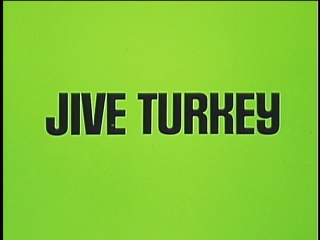
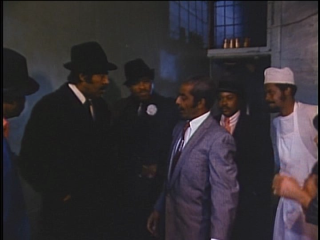
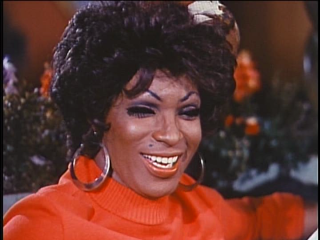
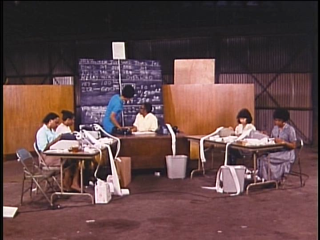
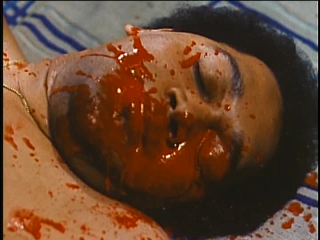
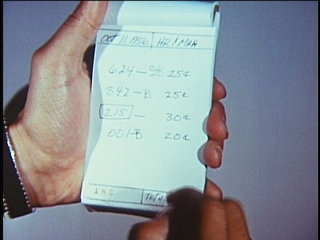









4 comments:
I'm pretty upset that there's a movie called JIVE TURKEY and I haven't seen it.
This makes two of us. Doug always manages to come up with a blaxploitation film I have never heard of.
I may have to turn in my hood license before it is all over.
Well, for both this and The Guy From Harlem you're certainly not missing much. Both films slipped into the public domain a long time back, so are probably widely available on budget releases - or on archive.org, but there's a reason neither have achieved much in the way of a reputation.
That said, a short clip from The Guy From Harlem shows up in the documentary American Grindhouse, which was amusing.
I love this movie especially Serene sHE go all in
Post a Comment